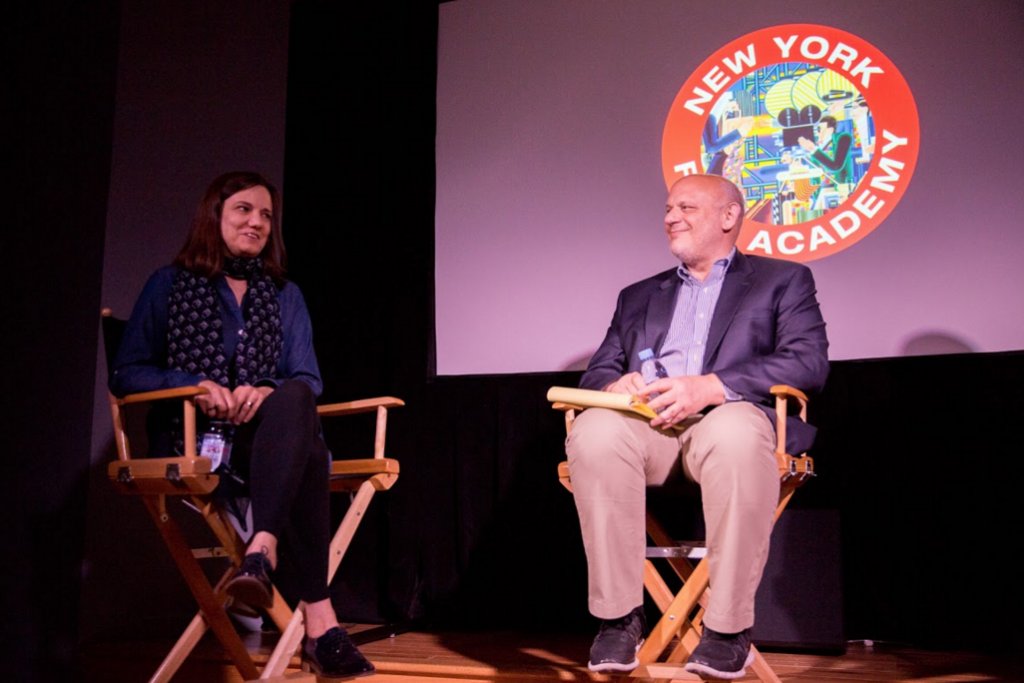As part of a joint collaboration between the Documentary and Producing Schools, the New York Film Academy welcomed back former NYFA instructor Amy Hobby to screen her Academy Award nominated documentary, What Happened, Miss Simone?. Similar to the Academy’s motto, Hobby exemplifies what it means to be a “hands-on” producer. With a deep experience across a wide range of budgets, Hobby has produced films, documentaries, and television for over 20 years.

Beginning her career as a camera assistant and eventually a producer’s assistant, Hobby worked on Tim Burton’s Ed Wood, and My Cousin Vinny. From there, her career and reputation as a driven producer took off and she began working on Nadja, produced alongside David Lynch, which premiered at the Sundance Film Festival and was quickly acquired by legendary independent distributor October Films. Next she co-produced Sunday, which won the top prize at the Sundance Film Festival, made its international premiere in Un Certain Regard at the Cannes Film Festival, and was showcased as part of New Directors/New Films at the Museum of Modern Art, among many other festivals and awards.
Hobby then produced Hamlet with Ethan Hawke, Bill Murray, Sam Shepard, and Julia Stiles, which was distributed widely by Miramax. Her extensive list of credits continued to accumulate to the point where she was able to start her own production company, Tangerine Entertainment, alongside Anne Hubbell. Tangerine is a film production company with a focus on female filmmakers and strong roles for women.
In addition to all of her work as a producer, Hobby currently serves as Vice President, Artist Programs at Tribeca Film Institute.
The documentary, What Happened, Miss Simone?, began as an idea by RadicalMedia and was distributed by Netflix. The film focuses on the classically trained pianist, dive-bar chanteuse, civil rights activist and legendary recording artist Nina Simone, who lived a life of brutal honesty and battled severe depression. It was the initial footage from Radical that grabbed Hobby’s attention and made her want to produce the project with director Liz Garbus. As an admitted lover of archiving, Hobby said, “We spent four months doing archival research. We would discover something and say ‘maybe that’s the turning point.’ There never really was a script.”
From there, Hobby and her team began digitizing hours of footage, creating a timeline, and securing the rights to use many of Nina Simone’s songs—which wasn’t an easy endeavor. Some of the early moments in the film of Simone as a child were recreated using 16mm and 8mm black and white film stock. The rest was archived footage and interviews.
After two years of research, legal negotiations, production, interviews, and countless other production tasks, she and her team had a successful documentary to show. After Simone’s daughter was able to see the film she told Hobby that not only did she love it, but she was also now at peace with her mother.
What Happened, Miss Simone? ended up premiering at the Sundance Film Festival in 2015, and can now be streamed on Netflix.